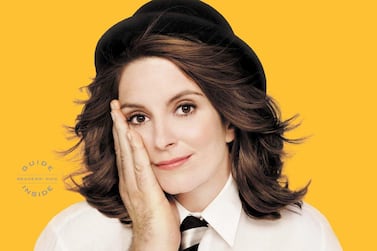Egyptian producers are in a race against time to complete this year’s batch of Ramadan television dramas.
As the coronavirus outbreak continues to disrupt all aspects of the entertainment industry, production companies are working intensively to maintain schedule.
This includes enacting a series of health measures, which range from sterilising sets and changing locations to rethinking certain camera angles and ensuring social distancing is in place between cast and crew.
The moves were done in line with legal requirements and lobbying from the country’s actors syndicate.
Speaking this week on the talk show Kulahu Wared on the broadcast channel Sada El Balad, the body's head Ashraf Zaki stated that while not all productions have been halted as of yet, more needs to be done to ensure the safety of all on-and off-screen talent.
He admits that this could result in certain shows not being able to be completed in time for the holy month, which begins around Thursday, April 23, and is normally a ratings boon for regional broadcasters.
“In these situations health is more important than work," he said. “Some shows may have to postpone the filming of series to sterilise sets and make sure everything is OK. We are studying the situation constantly as it is rapidly evolving.”
The ongoing health crisis has already severely affected a number of anticipated shows and with Egypt long viewed as a production hub, many regional programmes are also set to be affected. One of the most disrupted is likely to be the second season of the Saudi crime drama Iktiraf. With nearly half of the show – which follows an unfolding terrorist plot – shot in Egypt, the country's government's decision to suspend all travel to and from all airports until March 31 means key scenes featuring Saudi and Egyptian talent have yet to be completed.
Another show falling victim to the present travel ban is Hajma Murtada. The espionage drama, starring Egyptian actor Ahmed Ezz, has a globetrotting plot line and incorporates scenes in various European locations.
Meanwhile on the ground, health efforts are being ramped up across various Egyptian sets. One production presently exercising extreme caution is Al Prince, starring Mohamed Ramadan. According to Abu Dhabi newspaper Al Roeya, director Mohamed Sami reduced the number of group scenes, sterilised all cameras frequently, banned take away food from the set and urged all cast and crew to refrain from unnecessary physical contact.
When it comes to the drama Dahab Eira, actress Abeer Sabry posted a video showing all cast and crew having their temperature taken upon their arrival on set. Meanwhile Medhat Teekha, star of tribal drama Bit Kabyila, said in a recent press conference that certain action sequences were moved from outdoor settings to sterilised interior venues.
When it comes to Sultana Moez (starring Ghada Abdel Razek), producer Mamdouh Shaheen reportedly ramped up the production schedule with nearly daily outdoor shoots. However, he instructed director Mohamed Bakir to reduce large gatherings on set and distributed medical masks to all cast and crew.
For some productions, however, the increasing restrictions has proven too much. One show that pulled the plug is Khalid ibn al-Walid, a lavish historic drama based on the Muslim warrior and starring Amr Youssef. The production was responsibly delayed and will be screened after Ramadan due to its epic battle scenes featuring hundreds of extras and wildlife.
That said, the small screen will not be totally bereft of any entertainment during Ramadan. Programmes that have reportedly completed its shoots include Al Ikhtiar starring Amir Karrara and Valantino, which stars legendary actor Adel Imam.







